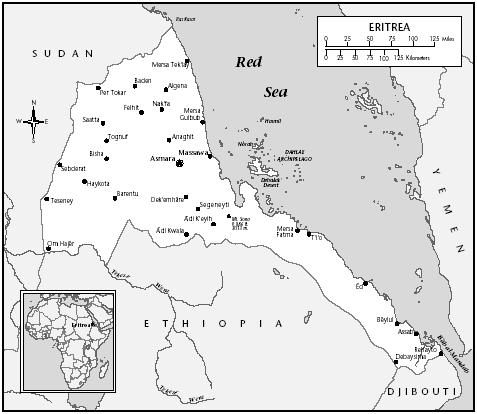Several years ago I was in the Minneapolis airport waiting out a flight delay that was lasting well into the evening. You can only fill the time so many ways. After I’d eaten dinner and browsed the newsstand I found a seat and pulled out a book to read.
An elderly woman took a seat nearby. It was obvious from the style of her clothes she wasn’t from Minnesota. I’m no fashion expert, but her long black dress appeared African or Middle Eastern. Large airports daily welcome international travelers. A person from another country is a common sight. Yet this person looked like a stranger in a strange place. She held her belongings close to her and tightly clutched her tickets as she stared at the scrolling red message board above the gate entry.
She looked my direction. I smiled at her and she smiled back. She held out her ticket, pointed to it and looked at me as though she wanted help. The ticket said she was on the same flight that I was on to Phoenix. But she didn’t speak English and I had no clue as to what she wanted, other than it was obvious that she was nervous and even a bit scared. I felt for her, but with the language barrier I was helpless.
About that time I noticed two sharply dressed African-American women watching us from their position in the duty free shop. They made a beeline in our direction. They blew past me as if I wasn’t there. One sat on either side of this elderly women and began excitedly chattering to her in a language I had never heard before. The old woman’s face lit up like Christmas in New York when she heard these two speaking her language. The three of them talked easily, like old friends, for 20 minutes.
When I sensed a break in their conversation I tapped one of the ladies on the shoulder and asked, “Do you know her?”
“No. But she’s from our country.”
“How can you tell?”
“By the way she’s dressed.”
I asked what country. “Eritrea.” Admittedly, my knowledge of world geography isn’t what it should be. But I had never heard of Eritrea. The lady informed me it had been part of Ethiopia but was now its own country.
 Feeling ignorant and intrigued, I did some schooling when I got back home. Eritrea is a tiny country that for many years was part of Ethiopia in northeastern Africa. Originally settled by Italy several hundred years ago, Ethiopia colonized the area in 1952 and in 1962 forcibly annexed Eritrea. That sparked 30 years of civil war, culminating in Eritrea establishing its independence in 1991.
Feeling ignorant and intrigued, I did some schooling when I got back home. Eritrea is a tiny country that for many years was part of Ethiopia in northeastern Africa. Originally settled by Italy several hundred years ago, Ethiopia colonized the area in 1952 and in 1962 forcibly annexed Eritrea. That sparked 30 years of civil war, culminating in Eritrea establishing its independence in 1991.
Eritrea has a population of about 3.4 million people. Ravaged by a long war, they are struggling to rebuild their infrastructure. Life there is much different than we know it. As of this writing, (February 2002) there isn’t a single cell phone in the entire country. For those precious few who have computers, only one Internet service provider. Their per capita annual income is $750. By comparison and perspective, the per capita income of the United States in 1999 was $25,518.
The gross national product of Eritrea is $760 million dollars. By comparison and perspective, in 1998 Americans spent $6.3 billion dollars on video games. That’s billion with a capital Nintendo.
We could spend all day flashing statistics verifying what we already know. The United States of America is the wealthiest country in the world. The money we spend on one form of leisure activity is more than the GNP of many Third World countries. The fact that we even have a category called “leisure activities” or “discretionary income” is proof enough that we are blessed with incredible, and to the rest of the world, unbelievable wealth.
Often, conversations about comparable wealth end up with one side making the argument that there is such a thing as having too much money. Those of a socialistic persuasion who believe the answer is to make everyone equal with regard to money might find it interesting that God doesn’t put a salary cap on earnings. Nowhere in the Bible does He say, “This much is too much.” King Solomon was wisest and wealthiest man who ever walked the planet. Solomon’s wealth would make Bill Gates’ Microsoft look like a struggling lemonade stand.
Free market capitalists who believe that the correct economic answer is the creation and preservation of wealth might find it interesting that while God doesn’t put a salary cap on earnings, He does hold everyone accountable for how they use their money. God seems to care more about our attitude toward money than how much or little we have. In God’s eyes, there is no such thing as insignificant income.
The first rule of money is as simple as it is true: God Owns It All. Solomon may have been a king, but when it came to money he was never an owner. He was always a manager. The same is true for you and I. Never an owner, always a manager. If we possess much, we don’t have the luxury of frivolous spending. If we have relatively little, we aren’t absolved from managing it wisely. God cares more about our attitude toward money than how much we have in our bank account.
Something I need to remember on this money making Monday morning.
“The earth is the Lord’s, and everything in it, the world, and all who live in it; for He founded it upon the seas and established it upon the waters.”
– Psalm 24:1-2
Todd A. Thompson – February 4, 2002



